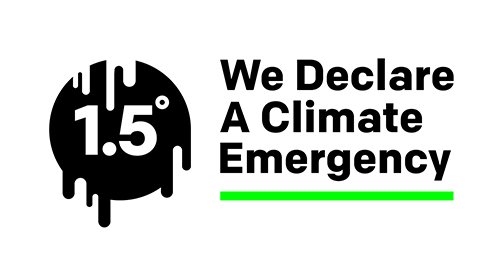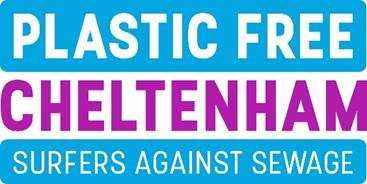Send a message 0333 344 5890 |
- Home
- Knowledge
- Membership FAQs
- Will my claims be credible?
Is this greenwashing? Will my claims be credible?
A common question when working with clients is “how credible will our carbon reduction claims be?”
ESG (Environmental Social and Governance) is at the top of the agenda for many businesses now, and while it’s understandable that this may be driven as much by business interest as genuine concern for ESG issues, it’s still important that any environmental claims businesses make in relation to their sustainability efforts are found to be genuine to maintain employee, shareholder, and wider stakeholder trust in the organisation.
Greenwashing, i.e., making a false claim about your carbon reduction or sustainability efforts is dangerous on two fronts; first because it creates false confidence that the climate crisis is being addressed, and second, if discovered, could impact negatively on your reputation, leading to a loss in sales and the likelihood of deterring potential investors.
In making over-stated carbon reduction claims, it may be the case that some companies are simply swept away on a tide of eco-enthusiasm – but clearly, this is no excuse. However, neither should fear of “getting it wrong” put brands off working on their ESG credentials – or talking about what they’re getting right.
At Go Climate Positive, we take our credibility regarding any claims made by our clients or ourselves around carbon reduction extremely seriously and take a number of steps to ensure any efforts and activities are backed by internationally recognised standards.
All of our Carbon Coaches are accredited by the Institute of Environmental Management (IEMA) and we are happy to help ensure our clients make genuine statements by checking any claims about their carbon footprint before they publish them.
Follow the Green Claims Code
While this is largely aimed at large corporate businesses, Greenwashing claims can also damage the activities of many smaller businesses whose intentions and claims are genuine. This was one of the reasons that the Government introduced the Green Claims Code in 2021 and demonstrates, once again, the benefits of having independent verification of your carbon footprint calculation and action plans.
Green House Gas Protocol corporate accounting and reporting standard
To calculate the carbon footprint of any business, we provide a full implementation of the Green House Gas (GHG) protocol corporate accounting and reporting standard, including the Value Chain (Scope 3) standard. Released in 2011, the Scope 3 Standard is the most widely used, internationally recognised standard in the world. It accounts for emissions from 15 categories, which include activities both upstream and downstream of a business’s operations and ensures consistency in reporting that encompasses a wide scope of emissions within an organisation’s value chain. We assess the relevance of all 15 Scope 3 categories for a business and always include those that make up more than 1% of your carbon footprint in our calculations.
As with financial accounting and reporting practices, GHG principles are intended to underpin and guide GHG accounting and reporting to ensure the reported inventory represents a faithful, true, and fair account of a company’s GHG emissions. The five principles used are: relevance, completeness, consistency, transparency, and accuracy and are intended to guide the accounting and reporting of a company’s scope 3 inventory.

Science-based Reduction Targets
Once we calculate and understand your carbon footprint, including those of your Scope 3 activities, we will help you set science-based targets to provide a clearly-defined pathway to reduce emissions in line with the overall goal set by the UN and the UK Government, to limit global warming to 1.5°C.
Then we help brands work towards their carbon reduction targets by following the Green Claims Code and provide independent validation of their carbon footprint calculation and action plans. So, you can be assured that your efforts are recognised, and you can take control of your sustainability messaging in an ethical and consumer-friendly way.
Where best practice standards are available, we use them. For example, we use PAS 2060, the BSI standard for Carbon Neutrality as the basis for awarding the Go Climate Positive ‘Carbon neutral’ certificate. PAS 2060 is another internationally recognised specification, which sets out requirements for quantification, reduction, and offsetting of Green House Gas (GHG) emissions for organisations, products and events.
Quality control for carbon credits
As well as helping you to reduce your carbon emissions we can help you achieve further positive impact by offsetting your unavoidable emissions with Gold Standard Certified carbon credits, and by supporting the creation of new, managed woodland in the UK. These credits are independently certified to adhere to the best practice principles of offsetting; verifiability; additionality; permanence; and avoidance of negative consequences.
Managed Woodland
Tree planting is a highly beneficial way to positively impact climate change as it physically removes carbon from the atmosphere and helps to promote biodiversity. We have partnered with 9Trees Carbon Offsetting CIC to create new woodland in the UK. With years of experience in nature conservation, promoting native wildlife and sustainable woodlands, whilst creating much needed countryside jobs throughout the UK is at the core of 9Tree's mission.
9Trees’ conservation expertise means that we are planting the right trees in the right places. We are creating woodlands with our partners that will be nurtured, for a minimum of 50 years maximising its ability to capture carbon and add benefits to the local environment.
We don’t plant trees on valuable habitats where this would damage or destroy these habitats; rather we ensure that tree-planting will enhance the local environment before we start. We don’t plant monocultures that have no benefit for local wildlife; instead, we plant a mixture of native tree species that are selected for each location to match the needs of wildlife.
We don’t double-count our trees; we account for each individual tree and its capacity to capture carbon is counted only once and is attributed to a specific subscriber or business partner. We can show you precisely where the trees are and what they are and offer opportunities for you and your team to visit the woodland and to carry out some of the work.
Read more about our Woodland conservation activity here.
How credible are your claims?
If you're marketing yourself as a sustainable business, now's the time to review your green messaging. To avoid any misrepresentation to stakeholders or repercussions from the Competition and Markets Authority (CMA), check everything you write about your carbon reduction efforts against the Green Claims Code. Customers respect honesty, so be transparent and remember that Greenwashing is never the answer! Go Climate Positive will always be happy to help by checking any claims about your carbon footprint before you publish them.
At Go Climate Positive, we help brands work towards their carbon reduction targets by following a strict set of internationally recognised standards and guidelines. By working with us, we can issue you a certificate to prove your efforts are honest and give your consumers (and the CMA) peace of mind that you really are as green as you say you are.
If you would like some guidance on how to comply with the code, or any carbon reduction guidelines get in touch with our Carbon Coaches today.




